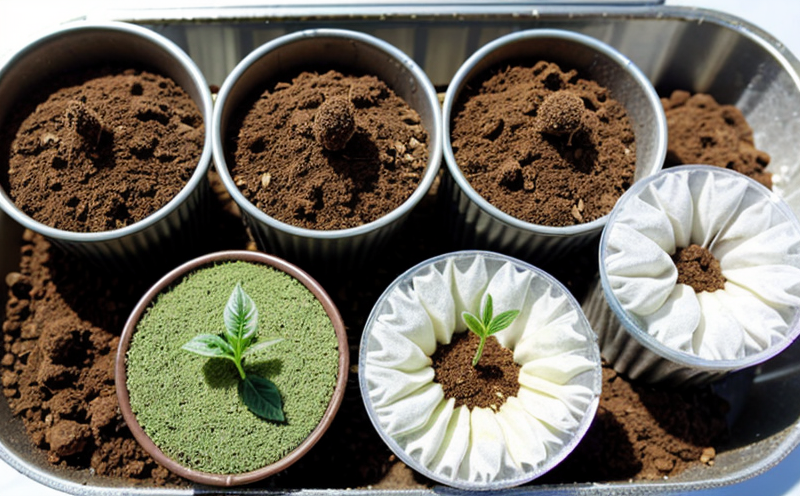Hybrid Seed Purity Testing
In agriculture and forestry, hybrid seed purity testing is a critical component of ensuring crop health and yield consistency. Hybrid seeds are created by crossing two genetically distinct parents to produce offspring with desirable traits from both. Ensuring the purity of these seeds is essential for maintaining the genetic integrity of crops, which in turn affects plant vigor, disease resistance, and overall productivity.
Hybrid seed purity testing involves a series of detailed analyses aimed at identifying the percentage of pure hybrid seeds in a given sample. This process helps to confirm that the seeds meet the required quality standards set by industry and regulatory bodies. The test parameters include assessing the genetic makeup, physical characteristics, and germination rates of the seeds.
The importance of this testing cannot be overstated, especially for large-scale agricultural operations or when introducing new hybrid varieties into a market. Seed purity directly impacts crop performance, yield stability, and profitability. For instance, in regions where disease pressure is high, maintaining pure seed lines can mean the difference between successful harvests and crop failures.
The testing process typically begins with the collection of representative samples from different lots or batches of seeds. These samples are then prepared according to standardized protocols that ensure accuracy and consistency. After preparation, the seeds undergo a series of analyses using advanced instrumentation such as flow cytometry, PCR, or DNA fingerprinting techniques.
The results of these tests provide detailed insights into the genetic composition of the seeds, allowing for precise identification of any contamination with non-hybrid varieties. This information is crucial for quality assurance and compliance purposes, ensuring that only pure hybrid seeds are used in cultivation practices.
Accurate seed purity testing also supports regulatory compliance by verifying that products meet specific quality standards set forth by organizations such as the International Seed Testing Association (ISTA) or the American Society for Testing and Materials (ASTM). These standards ensure that consumers receive high-quality agricultural inputs, which is particularly important in export markets where stringent quality controls are enforced.
Understanding the genetic makeup of seeds also aids in breeding programs. By testing seed purity at various stages of development, breeders can identify and eliminate any unwanted traits or contaminants early in the process, leading to more robust and resilient crops. This continuous monitoring is vital for maintaining the integrity of hybrid lines over multiple generations.
Hybrid seed purity testing plays a pivotal role in ensuring that agricultural products meet both domestic and international standards. It supports sustainable farming practices by promoting the use of genetically sound seeds, thereby enhancing crop resilience to environmental stressors like drought or pest infestations. In essence, this service is not just about quality control; it’s an investment in the future of global agriculture.
Why It Matters
- Quality Assurance: Ensures that only pure hybrid seeds are used, leading to consistent and reliable crop performance.
- Regulatory Compliance: Meets the stringent requirements set by international standards like ISTA and ASTM.
- Sustainability: Promotes sustainable farming practices by enhancing crop resilience and reducing environmental impact.
- Economic Benefits: Minimizes losses from poor quality seeds, thereby increasing profitability for farmers.
The importance of hybrid seed purity testing extends beyond just the agricultural sector. It has broader implications for food security, environmental sustainability, and economic stability. By ensuring that only pure hybrid seeds are used in cultivation, we can support global efforts to combat hunger and malnutrition while also protecting natural ecosystems.
Applied Standards
| Standard | Description |
|---|---|
| ISTA Standard No. 8 | Defines the methods for determining seed purity in hybrid crops. |
| ASTM D5713-20 | Provides guidelines for the analysis of seed purity using flow cytometry. |
| EN ISO 6489-2017 | Details the procedures for seed purity testing in various agricultural crops. |
| IEC 62366-2:2015 | Outlines requirements for seed purity testing to ensure compliance with international standards. |
The application of these standards ensures that the testing process is consistent and reliable, providing accurate results that are universally accepted. Compliance with these standards also helps in maintaining a high level of trust among stakeholders, including farmers, buyers, and regulatory bodies.
Quality and Reliability Assurance
- Representative Sampling: Ensures that samples accurately reflect the overall quality of the seed lot.
- Standardized Protocols: Follows established procedures for sample preparation, analysis, and reporting.
- Advanced Instrumentation: Utilizes cutting-edge technology such as flow cytometry and PCR to ensure precise results.
- Comprehensive Reporting: Provides detailed reports on seed purity, genetic composition, and any contaminants detected.
The quality assurance process in hybrid seed purity testing is rigorous and involves multiple stages. From the initial collection of samples to the final analysis and reporting, every step is designed to ensure accuracy and reliability. This commitment to excellence ensures that only high-quality seeds are used in agriculture, thereby supporting sustainable practices and long-term crop health.





